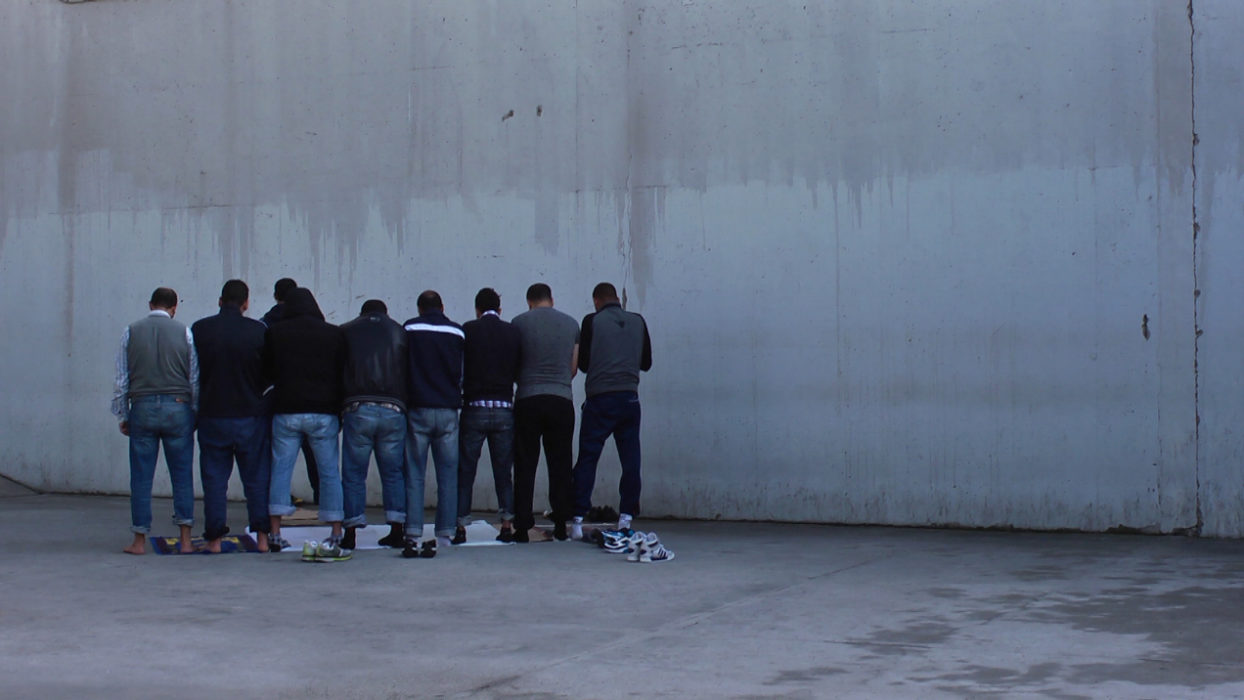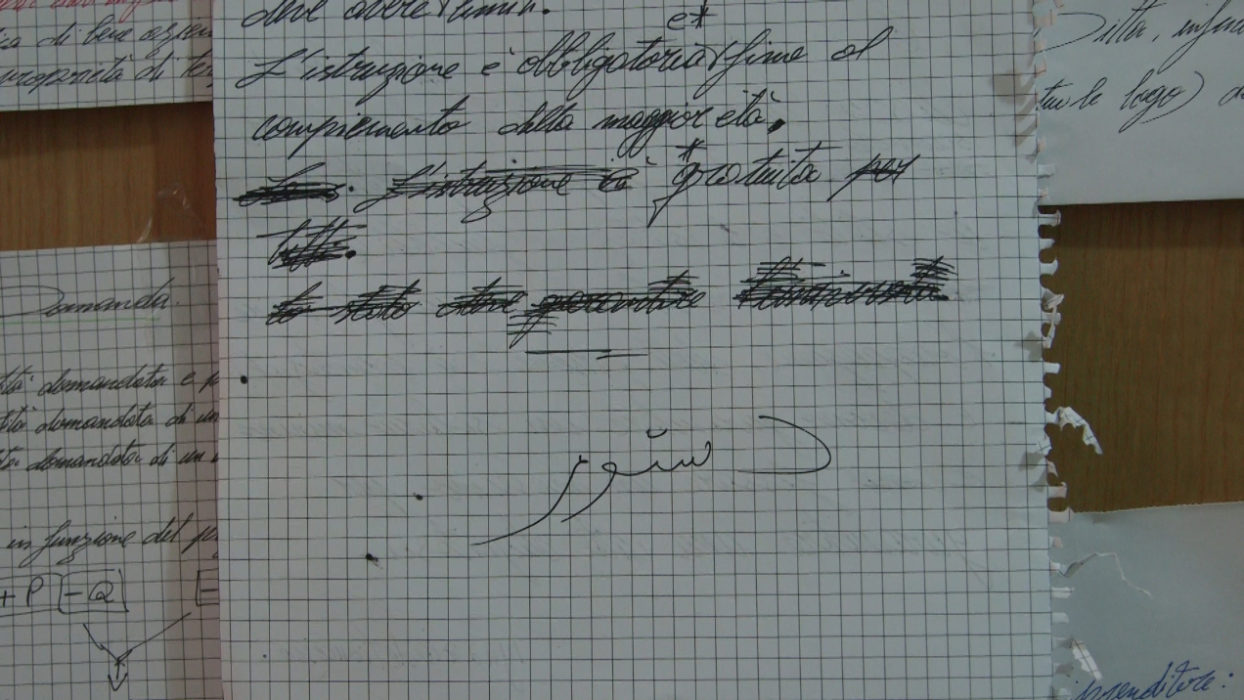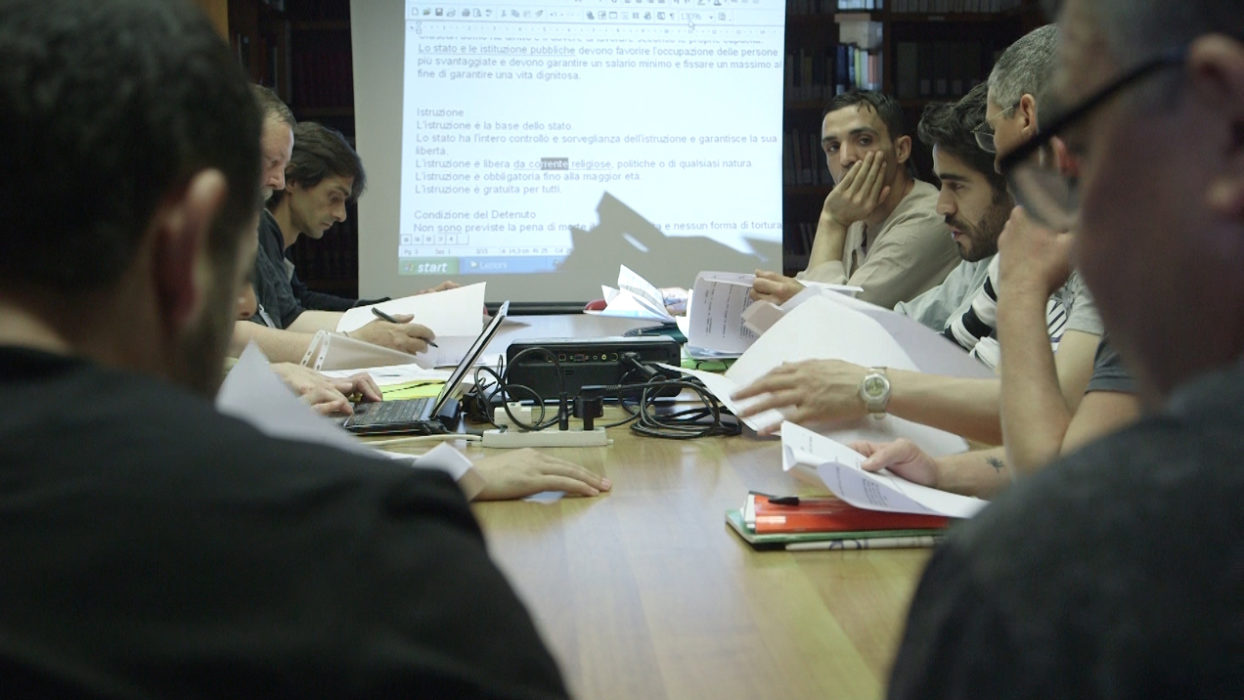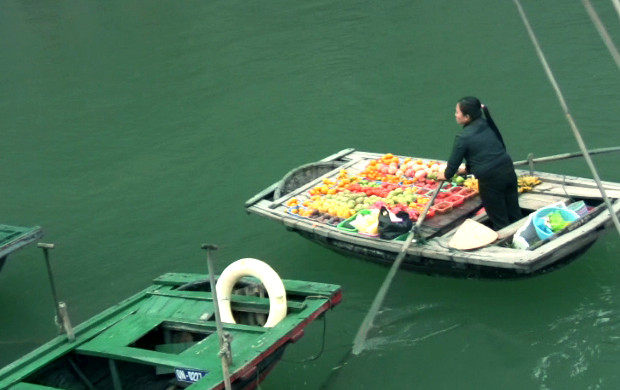Dustur
YOUTH AWARD
In a Bologna prison, a Catholic monk and a Muslim mediator run a course on the Italian Constitution and Islamic tradition. Samad, a Moroccan detainee on conditional release, attends it while awaiting his final release. Dustur opens in a prison library and (almost) closes in the Apennines, a region that was home to antifascist resistance and to Giuseppe Dossetti, the priest and legal expert who helped to draw up the 1946 Constitution. Be it the hamster-sized cage or the clanking of bars, an underlying tension between opening and closing runs through the film. It poses a double collective and individual challenge: to “open up” a religion in danger of becoming radicalised behind bars and to successfully go back into the open air. If only by the structuring of his sequences, Marco Santarelli sets face to face the importance of precise vocabulary, with each and every word being discussed during the workshop (“Words are important!”, yells Nanni Moretti in Palombella rossa) and the naked force of action at critical – and harrowing – moments of one’s existence. By criss-crossing an educational vocabulary with an intimate testimony, Dustur also suggests through its form what the writing process can bring to the individual and society: for Samad, the purpose of the course (writing an ideal constitution, dustur in Arabic) dovetails with the need to write a new life for himself, facing the mirror of the blank page. (Charlotte Garson)
Ottofilmaker; Istituto Luce - Cinecittà; Zivago media
Simona Agnoli
Marco Santarelli
Marco Santarelli
Marco Santarelli
Istituto Luce - Cinecittà





